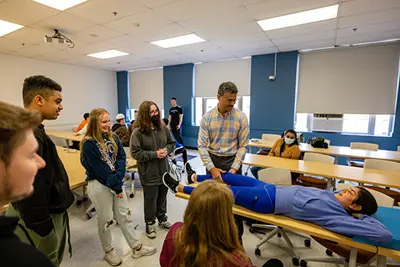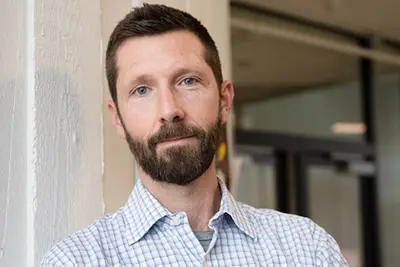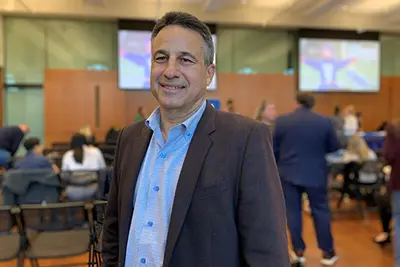School of Education Partnering on ‘Grow Your Own’ Teachers Program
 Image by Cassie McCallum
Image by Cassie McCallum
12/09/2022
By Katharine Webster
In sixth grade, Kaunitha Heng was chosen to prepare and present a lesson to the other students in a middle school English class — and greatly enjoyed it.
“It was really just a presentation, but I remember thinking, ‘They have to understand what I’m talking about,’ and then I asked them questions,” Heng says. Afterwards, “My friends called me ‘Teacher Heng.’”
Now, Heng is in the “Grow Your Own” teacher pathway program at Lowell High School, applying to UMass Lowell and other colleges as an education major and planning to become a teacher.
“I just want to do something I actually like,” Heng says.
 Image by K. Webster
Image by K. Webster
The Grow Your Own partnership, which will soon include Greater Lowell Technical High School, is aimed not only at introducing more high school students to teaching careers, but also at diversifying the teaching workforce in Massachusetts, where more than 40% of students are children of color and about 90% of teachers are white. That disparity is even greater in urban districts like Lowell and Lawrence.
“It’s so important for our students to see themselves in their teachers,” McCallum says. “When they do, their academic achievement goes through the roof.”
The high school students study the same curriculum and have the same field experiences in Lowell public elementary schools as first-year education majors at UML, McCallum says.
They can also take dual-enrollment classes in psychology, sociology, science and college writing through UML and Middlesex Community College during their junior and senior years of high school. Those credits can save them time and money when they start college, says Fine Arts, Humanities and Social Sciences Assoc. Dean Stacy Szczesiul.
 Image by K. Webster
Image by K. Webster
Jill Rothschild ’10, ’20, now associate head of school at Lowell High, has been working closely with Szczesiul – who was until recently her advisor in the Doctor of Education program – on revamping the Grow Your Own pathway so it aligns with UML’s undergraduate education major.
Students who had taken a previous class in Lowell High’s education pathway or who had expressed an interest in it, like Heng, were invited to take Introduction to Teaching in Inclusive Classrooms this fall, Rothschild says. There was an enthusiastic response.
“It’s great to see excitement about education,” she says. “And student excitement has been phenomenal” at Bailey Elementary School, where the Lowell High students are getting their field experience.
 Image by K. Webster
Image by K. Webster
McCallum and Szczesiul also hope to connect the students of color in the Grow Your Own pathway to mentors in the Diverse Teachers Network, a professional support group for teacher-leaders in the Lowell Public Schools, “so that they have an affinity group and they’re being professionalized early on,” Szczesiul says.
Szczesiul and McCallum have invited the Lowell High students to events at the School of Education, provided them with UML School of Education polo shirts to wear when they go out on their first field experiences and connected them with student ambassadors – sophomore and junior education majors.
 Image by K. Webster
Image by K. Webster
“A lot of the (Lowell High) students had first-day nerves,” Descheneaux says. “Even I get a little nervous sometimes, thinking, ‘How’s the teacher I’m going to be with? How are the kids going to react?’
“I think going from the high school and getting into these classrooms earlier is going to help with these jitters they might feel if they go on to the university or go into teaching.”
Recently, a small group of third-graders at Bailey Elementary School listened with rapt attention as Heng read them a National Geographic book on penguins and polar bears, explaining terms and answering questions.
“I thought, ‘Oh no, the kids are going to be bored,’ but one of the kids said, ‘Penguins are going to be extinct,’” Heng says.
“I loved it. It really did confirm that I enjoy teaching.”




